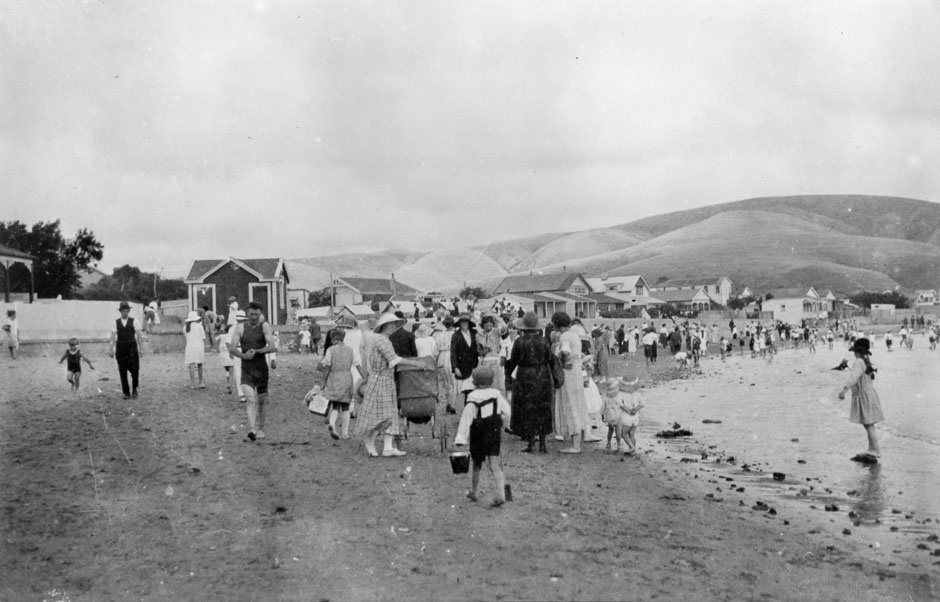
Christmas Day revellers on Plimmerton beach in the 1920s.
Christmas becomes a public holiday
It's hard for most of us today to imagine Christmas Day not being a holiday, but a day off on 25 December hasn't always been a legal entitlement.
Christmas, like New Year and Easter, came to New Zealand with the earliest European settlers. At first it was a common-law holiday – a custom but not a legal right. In the mid-19th century, 25 December (unless it was a Sunday) was just another working day for many people although some of the provinces (such as Otago) made it a holiday.
Shops and pubs often opened. Newspapers were published on Christmas Day, some of them even into the early 20th century. In some early issues, Christmas was not even mentioned. The 25 December 1841 edition of the New Zealand Gazette was no different from any other issue of the paper.
New Zealand's first holiday law was the Bank Holidays Act 1873, modelled on British legislation, which confirmed the banks' existing practice of closing on 25 December and certain other holidays. The Employment of Females Act 1873 and the Factories Act 1894 gave female and youth workers the right to time off on Christmas Day, New Year's Day, Good Friday, Easter Monday and several other days.
After the introduction of the Industrial Conciliation and Arbitration Act 1894, most other New Zealand workers were guaranteed a handful of holidays, including Christmas Day and Boxing Day, in their industrial awards and agreements. These entitlements were confirmed by the Public Holidays Act 1910.
In the early 21st century an increasing number of New Zealanders work on Christmas Day and other public holidays, mainly in the transport, health and hospitality sectors and in essential services. Under the Holidays Act 2003, most people who work on Christmas Day are entitled to time-and-a-half pay and an alternative day off.

Community contributions